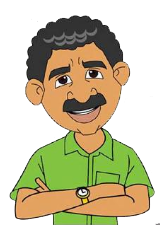The rural communities in East Malaysia is all set for a cash crop starting next year – thanks to nuclear science. Stevia, a natural sugar substitute, is native to South America and difficult to grow in Malaysia’s tropical climate, has pushed the nuclear scientists and researchers at the Malaysian Nuclear Agency to use irradiation to develop a variety best grown in humid and damp conditions. The new breed, which will be available to farmers for the next growing season, is not only tolerant to humidity but is also a lot bushier than the traditional variety, bearing more and larger leaves. This is particularly important because the sweetener is extracted from the plant’s leaves.
While it has been used as a sweetener in parts of South America for centuries, Stevia is only now becoming popular in the rest of the world as an alternative to both sugar and artificial sweeteners.
The IAEA, in cooperation with the Food and Agriculture Organization of the United Nations (FAO), supports countries, including Malaysia, in the use of radiation for agricultural research and development. It promotes development of enhanced varieties of seeds for improved production. This technique, which is harmless to humans or the environment, is responsible for the development of many favourable varieties, including salt tolerant rice in Bangladesh and soybeans with double the yield of traditional varieties in Indonesia.





Comments
nff
Tue, 01/02/2018 - 11:04
Permalink
nuclear enrgy
nuclear enrgy